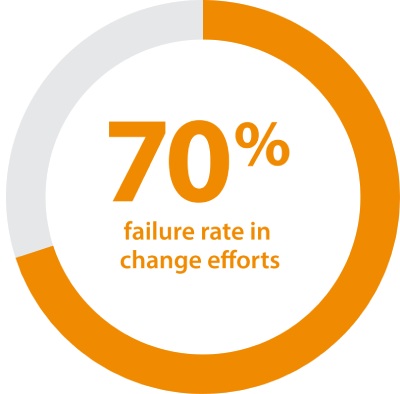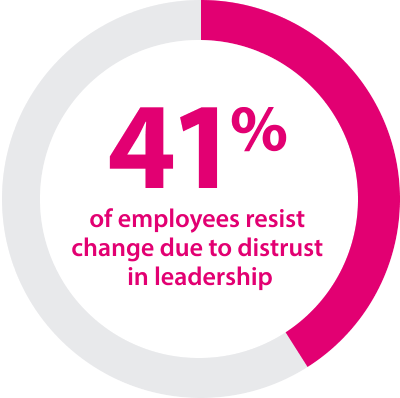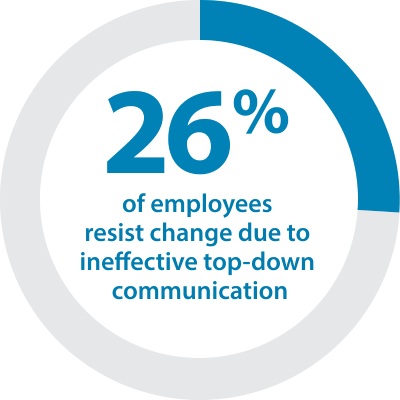1. Navigating a constantly changing landscape
Change initiatives rarely fail because of poor strategies, they fail because people are overlooked.
Despite numerous studies showing a 70% failure rate in change efforts, organizations often focus on perfecting processes, technologies, and strategies while neglecting their most vital asset: their people.
When change is constant, organizations face immense pressure to continuously adapt — be it digital transformation, restructuring, AI advancements, shifting market demands or a supply chain vulnerable to geopolitical instability.
This has led to widespread change fatigue at all levels, with employees feeling overwhelmed by the lack of stability and consistency.
Yet, within this turbulence lies opportunity.
Organizations that embrace change and cultivate adaptability can stand above their peers to unlock growth, innovation and long-term success.






























































